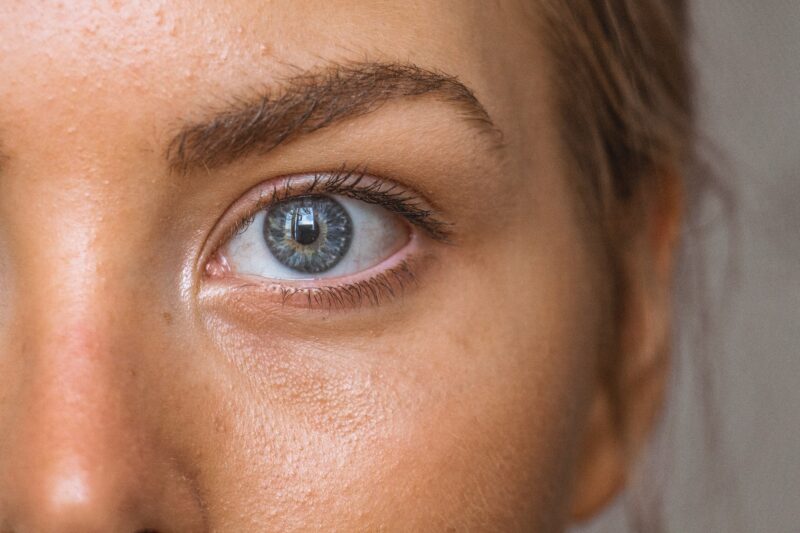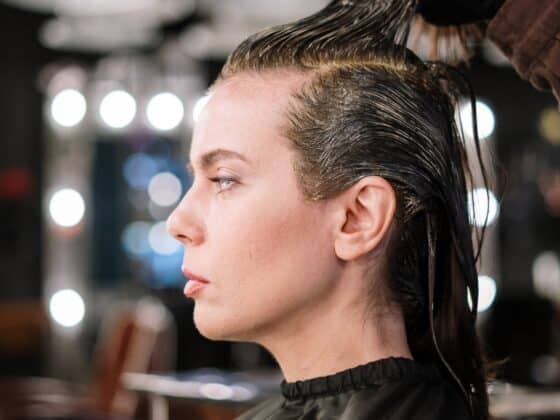Pigmentation is a common skin concern that can affect people of all ages and skin types.
It is characterised by the appearance of dark spots or patches on the skin and can be caused by a variety of factors.
While pigmentation is a natural part of the ageing process, it can also be a source of frustration and self-consciousness for many people. But fortunately, there are a variety of ways you can stave it off to achieve a more radiant complexion.
In this article, we will explore some of the most effective ways to combat pigmentation in the skin, from daily habits such as wearing sunscreen to cosmetic treatments such as chemical peels and laser therapy.
Whether you are looking for natural remedies or professional interventions, there are plenty of options available. All of these can help to reduce the appearance of pigmentation and leave your skin looking its best.
So, let’s dive in and take a closer look.
What causes pigmentation in the skin?
Pigmentation in the skin is caused by the production of melanin, a pigment that gives the skin its colour.
Melanin itself is produced by melanocytes, which are specialised cells located in your epidermis and hair follicles. The amount and distribution of melanin in the skin are influenced by a variety of factors. These include your genetic makeup and age, as well as whether you are taking certain medications like antibiotics or chemotherapy drugs.
It also relates to the amount of exposure you get to the sun, as an excessive amount of it can cause permanent damage to the skin, leading to hyperpigmentation, such as sun spots or age spots.
Additionally, hormonal changes, such as those that occur during pregnancy or menopause, play a part too. While inflammatory skin conditions, such as acne, eczema, or psoriasis, and skin traumas such as cuts or burns, can be contributory factors as well.
Although some pigmentation in the skin may be a result of a natural occurrence, excessive or uneven pigmentation can be a sign of an underlying condition or disease. So, if you are concerned about changes in your skin’s pigmentation, it is worth seeking the advice of a dermatologist or other medical professional.
Best Ways To Combat Pigmentation in the Skin
If you’re looking to even out your skin tone and reduce the appearance of pigmentation, there are a variety of treatments and strategies you can try. Here are 7 of the most common of them you should be aware of.
Sun Protection
One of the most effective ways to combat pigmentation is to protect your skin from the sun.
The harmful UV rays can cause pigmentation to worsen and make it difficult to get rid of. For this reason, sunscreen is a must-have in your daily skincare routine, and it is recommended you apply it at least 20 minutes before going outside.
Additionally, it is essential to reapply every two hours or more frequently if you are sweating or swimming. Wearing a hat, sunglasses, and protective clothing can also help to minimise sun exposure.
Vitamin C
Vitamin C is an antioxidant that can help to reduce pigmentation by inhibiting melanin production. It also brightens the complexion and evens out the skin tone.
Adding a Vitamin C serum or product to your skincare routine can be a game-changer for pigmentation. It is best to use Vitamin C in the morning to protect the skin from free radicals and sun damage.
As well as improving your skin, Vitamin C can also help to remove hair dye as well.
Topical Skin Brighteners
Topical skin brighteners can help to reduce pigmentation by blocking the production of melanin.
Ingredients such as hydroquinone, kojic acid, and arbutin are commonly used in these products. However, it is important to note that these ingredients can be harsh on the skin, so it is essential to use them as directed and follow up with a good quality moisturiser.
Be mindful that some people may experience irritation or sensitivity, so it is best to do a patch test before using them all over the face.
Chemical Peels
Chemical peels are an effective way to combat pigmentation and improve skin texture.
They work by removing the outer layer of dead skin cells to reveal brighter, smoother skin underneath.
Chemical peels can be done at a dermatologist’s office or with at-home kits. It is essential to choose the right type of peel for your skin type and to follow the instructions carefully to avoid irritation or burns.
Glycolic acid and salicylic acid peels are most commonly used for pigmentation concerns.
Laser Therapy
Laser therapy procedures like laser skin treatment are another very good option.
A non-invasive solution, this measure is used for everything from scarring and birthmarks to tattoo removal and vascular conditions, such as redness.
Operating with a deliberate wavelength of light, this process can revitalise your skin by countering wrinkles and skin texture and smoothing fine lines by tightening the skin.
To achieve optimal results, this type of laser therapy may require several sessions. You should also ensure you choose a reputable and experienced practitioner, should you decide to go this route.
Retinoids
Retinoids are a form of Vitamin A that can help to reduce pigmentation by increasing cell turnover and exfoliating the skin.
They also stimulate collagen production, which can improve the texture and appearance of the skin.
Retinoids are commonly used for acne, but they can also be helpful for pigmentation concerns. They can be found in prescription-strength creams or over-the-counter products.
It is important to use retinoids as directed and to avoid using them with other exfoliating products, as this can lead to irritation or sensitivity.
Natural Remedies
Natural remedies can also be effective in combating pigmentation in the skin. Many people prefer them as they are less invasive and generally have fewer side effects than medical treatments.
Some natural remedies that are effective in reducing pigmentation are as follows:
Lemon juice: Lemon juice contains natural acids that can help lighten dark spots and pigmentation. Simply apply fresh lemon juice to the affected area and leave it on for 10-15 minutes before rinsing off.
Aloe vera: Aloe vera contains compounds that have been shown to lighten skin and reduce pigmentation. Apply aloe vera gel to the affected area and leave it on for 20-30 minutes before rinsing it away.
Turmeric: Turmeric contains curcumin, a compound that has anti-inflammatory and skin-lightening properties. Mix turmeric powder with honey or milk to create a paste, apply to the affected area, and leave it on for 20-30 minutes before removing it.
Apple cider vinegar: Apple cider vinegar contains alpha-hydroxy acids that can help exfoliate the skin and lighten pigmentation. Mix equal parts apple cider vinegar and water, apply to the affected area, and leave on for 5-10 minutes before getting rid of it.
Green tea: Green tea contains antioxidants that can help reduce pigmentation and protect the skin from damage. Brew a cup of green tea, let it cool, and apply it to the affected area with a cotton ball. Leave it on for 10-15 minutes before wiping it off.
While natural remedies can be effective in reducing pigmentation, it is important to note that they may not work for everyone. Results may also take a much longer time to see than with medical treatments, so you should be aware they are not a ‘quick fix’ solution.
Conclusion
As anyone who suffers from the condition will tell you, pigmentation in the skin can be a frustrating issue. But thankfully, there are many effective ways to combat it.
From medical treatments like chemical peels and laser therapy to natural remedies like lemon juice and aloe vera, some options should help every skin type and concern.
However, at the end of the day, it is important to remember that prevention is key when it comes to pigmentation. So, protecting your skin from the sun and doing your best to avoid triggers like hormonal changes and certain medications is something to be mindful of.
Ultimately though, with the right approach and a little patience, you can achieve a more even skin tone and a renewed sense of confidence.


